- Home
- slideshows
- miscellaneous
- 28 ways companies and governments can collect your personal data and invade your privacy every day
28 ways companies and governments can collect your personal data and invade your privacy every day
Privacy is defined by the Oxford English Dictionary as "freedom from disturbance or intrusion." Personal data can be anything from social security and bank account numbers to Instagram photos and Google searches.

Make no mistake — this data is valuable. In 2018, American companies spent an estimated $19 billion getting and analyzing consumer data. Third parties known as "data brokers" collect the information and sell it.
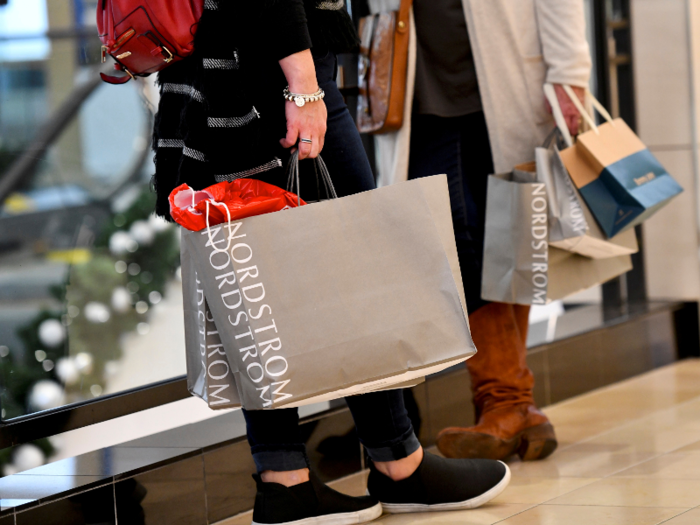
It's sometimes hard to conceptualize where that data goes, but The Atlantic described the tracks they take as "invisible 'supply chains'" that "create marketplaces out of behavioral data."
When someone has a digital conversation or makes a purchase, that's recorded. That record is shared with a third party, which can sell the data to another organization.
Sources: Wired, Vice, Financial Times
Jeffrey Chester, executive director of the Center for Digital Democracy, told the Financial Times that the data market had boomed so much there are now "privacy deathstars," like Oracle and Nielson, which can supply hundreds of pieces of data on different people.
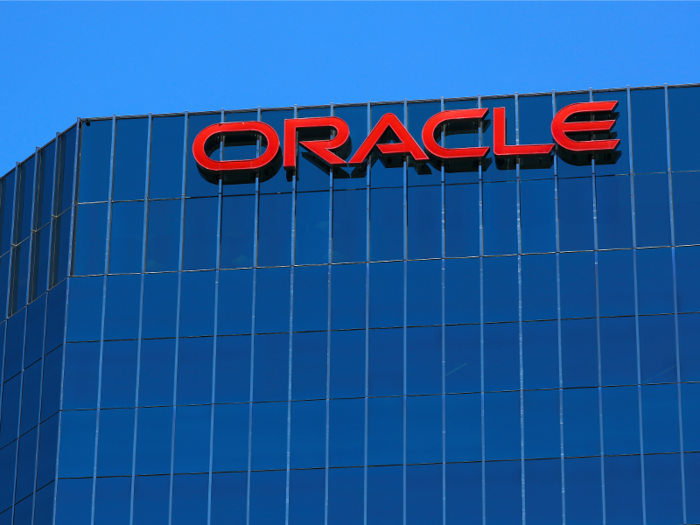
Source: Financial Times
As author Shoshana Zuboff lamented to The Atlantic about the loss of privacy: "We are not the ivory. We are not what is poached. We are the carcass that is left behind."
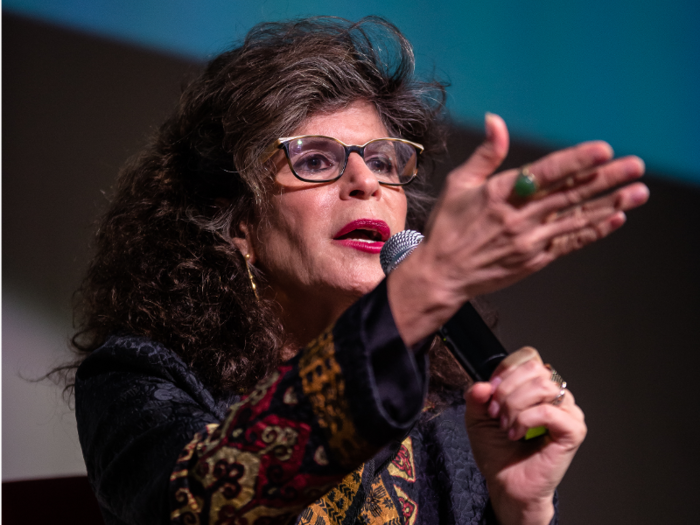
Source: The Atlantic
Some people think the loss of privacy doesn't matter, because they've done nothing wrong and have nothing to hide. But Ben Wizner, a director of the American Civil Liberties Union and a legal adviser to Edward Snowden, argues that's not the point.
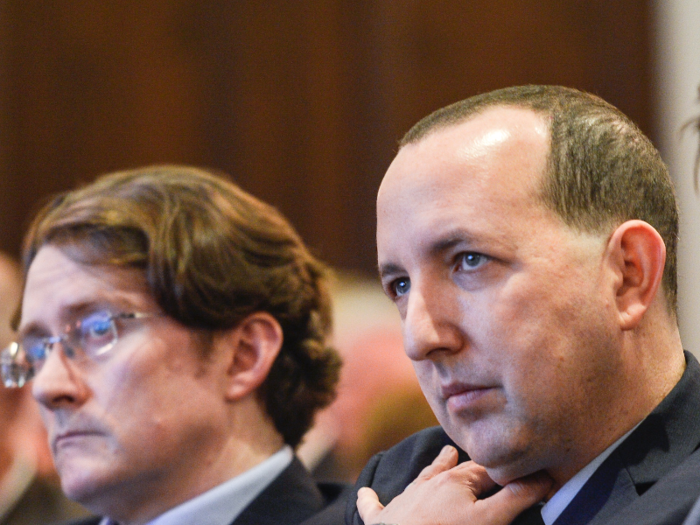
He told BBC: "For every single one of us, there is some pile of aggregated data that exists, the publication of which would cause us enormous harm and, in some cases, even professional and personal ruin. Every single one of us has a database of ruin."
It's important, too, because the more people who give up their privacy, the more normalized it becomes. This impacts people who do need security and privacy, including whistleblowers like Snowden.
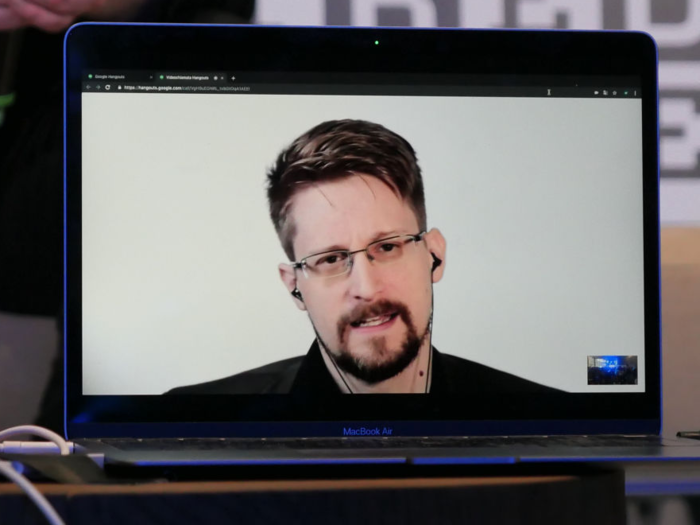
Source: Time
What data do companies want? According to The Guardian, it's all about the details that will change spending habits, like having a baby, or trying to lose weight.

As Alex Preston explained for The Guardian, "Big life changes – marriage, moving home, divorce – bring with them fundamental changes in our buying patterns as we seek, through the brands with which we associate ourselves, to recast the narratives of our lives."
The day of losing privacy begins at night, because even in our sleep, we're likely to be providing data. For the Washington Post last year, Geoffrey Fowler discovered his iPhone sent data to a dozen different firms overnight. Mostly, it gave out his location and IP address.
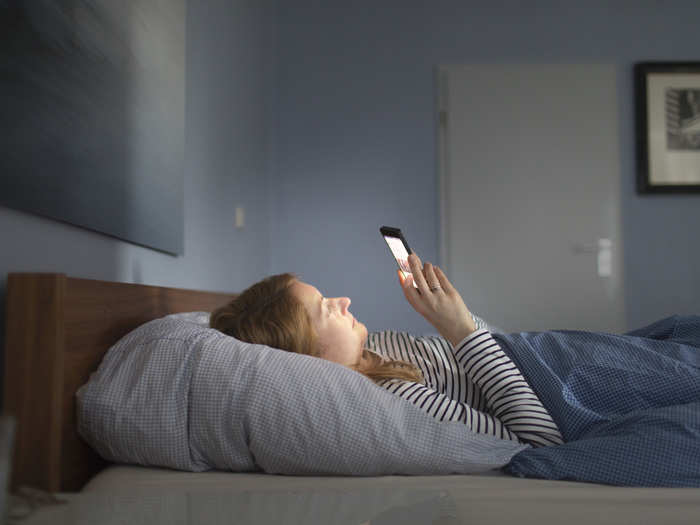
Apps that were giving his information to third parties included Spotify, the Washington Post, and IBM's The Weather Channel.
You probably agreed to it when you signed the app's terms and conditions. But these policies aren't designed to be read by the general population. According to Time, to read every user agreement a person encounters annually would take 76 hours. When The New York Times read 150 of them, it called it "an incomprehensible disaster."
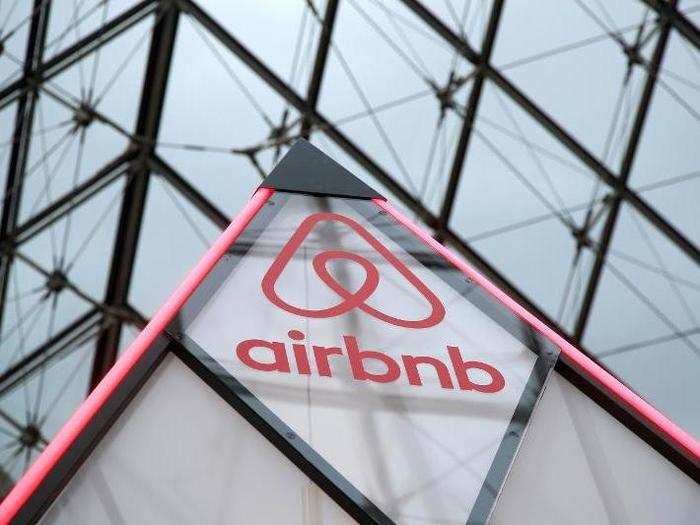
Of the 150 agreements that The New York Times analyzed, by far the most accessible was the Craigslist's, while Airbnb was at the other end of the spectrum.
After rising from bed, the rest of your morning routine might not be private if you live in a house or apartment that is accessed with pin codes, fob keys, or smartphones. The technology lets buildings collect data as residents come and go, and could show landlords daily patterns, like when you take your dog for a walk.
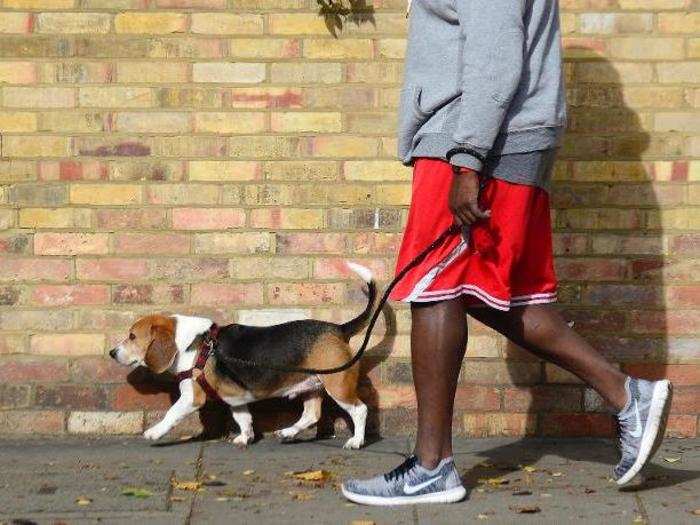
How much heat and electricity you use is also available for landlords in some smarthome systems, according to The New York Times.
Lots of people check their phone pretty early into their day. For new phones, if you can't be bothered entering a passcode, facial recognition will open it for you. This is a trend, and it's impacting privacy. Our faces are providing access to more and more places.
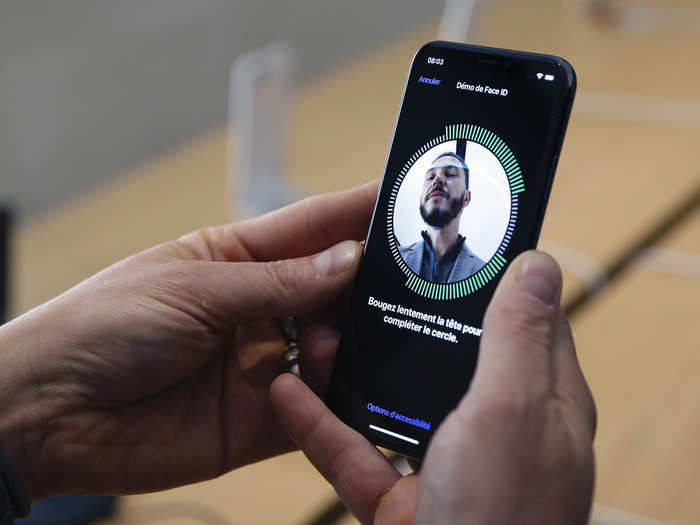
Sources: The New York Times, Wall Street Journal
Police have about every other American face in a database. Airports are beginning to use facial recognition to make traveling more efficient. Delta Airlines and JetBlue are both testing using facial recognition to board planes at some airports.
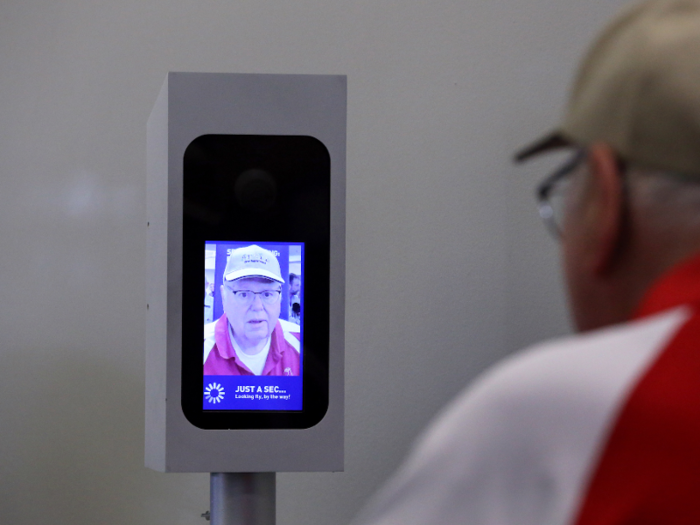
Sources: The New York Times, Wall Street Journal, Wired
In 2015, Baltimore police used facial recognition to find people who had warrants out for their arrests during a protest over the death of Freddie Gray, who died in police custody. Those identified with a warrant out were arrested.

Source: The New York Times
In another case in 2017, a man was caught on camera stealing beer from a CVS. The shot of him was blurry, but a detective thought he resembled Woody Harrelson, so he put a photo of Harrelson into the database and got a match, which led to a man being arrested.

Not every US city is as intense. In 2019, San Francisco voted to ban police using facial recognition in the city, The New York Times reported.
Adam Schwartz, a senior attorney at Electronic Frontier Foundation, told the Wall Street Journal that the focus on facial recognition meant "we are heading into a world where the government, or a conglomeration of corporations, knows potentially everywhere you've been, who you were with and what you were doing all of the time."

Source: Wall Street Journal
Once you're on your phone, if you decide to check the overnight news, that'll be tracked. News sites have quite a bit of advertising to support their business models, and your online footprint will be monitored.
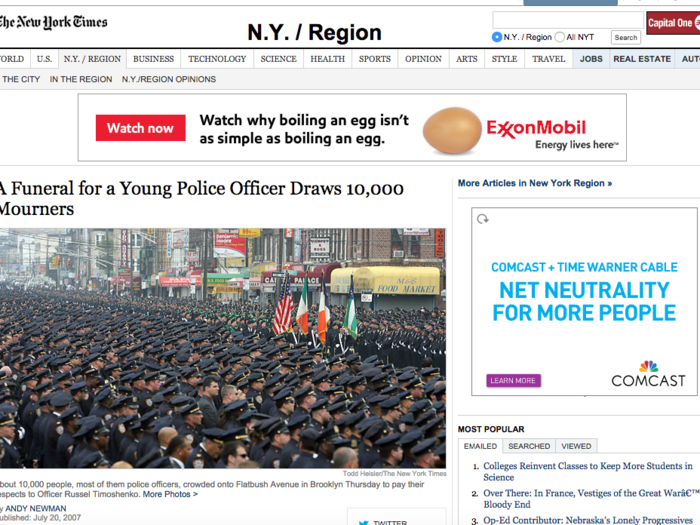
Source: The New York Times
See Insider Inc.'s privacy policy here to see what information we collect from you.
With a quick check of your emails, more of your personal data gets scooped up — and it's a prime target for hackers. In 2013, 3 billion Yahoo email accounts were hacked. The Fourth Amendment protects what you write in your emails within the last six months, but not where you sent the email from.
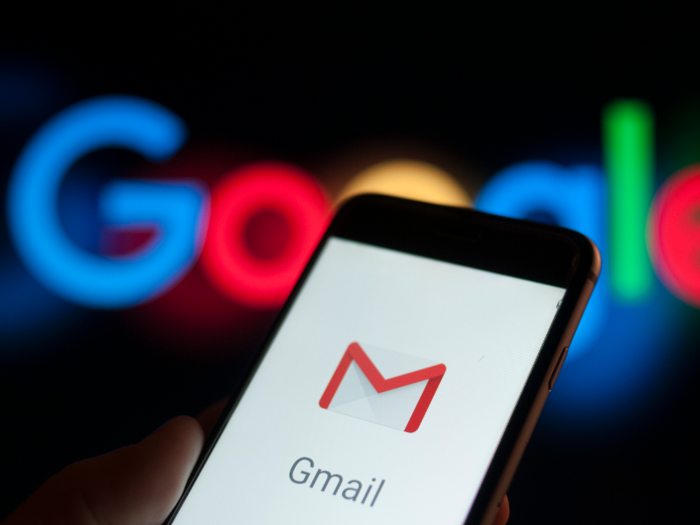
Sources: The New York Times, The New York Times
Operating within your own email inbox is no longer private. If you're applying for college, your email etiquette could be monitored. Universities in the US are using data, such as the length of time an email is open and whether links are clicked, to work out the level of "demonstrated interest" from a possible new student.

The universities include Boston University, Seton Hall University, and Quinnipiac University, according to the Wall Street Journal.
If you're using Google Chrome, and want to make your searches private by turning on "incognito", know that Google adds these private searches to the profile it has of you.
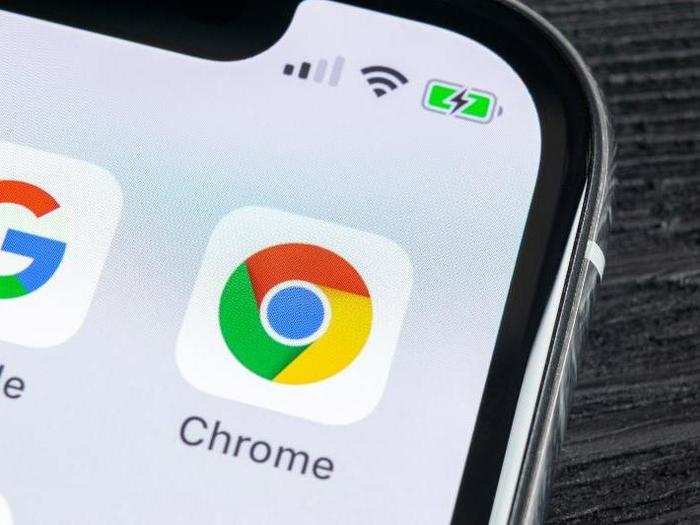
Source: The Atlantic
Checking social media platforms like Facebook, Instagram, and Twitter will give the companies and third parties troves of data. That's how they're free — you're paying with information. According to Forbes, Facebook has 2 billion active users. Every minute, users upload 50,000 photos to Instagram, and send 500,000 tweets on Twitter. Everything you post could help build a more cohesive data profile of you.

If you've got some time to kill, maybe you download the latest viral app. Last year, FaceApp aged millions of peoples' photos. The Washington Post found that the app sent information to Facebook and Google, as well as other undisclosed servers.
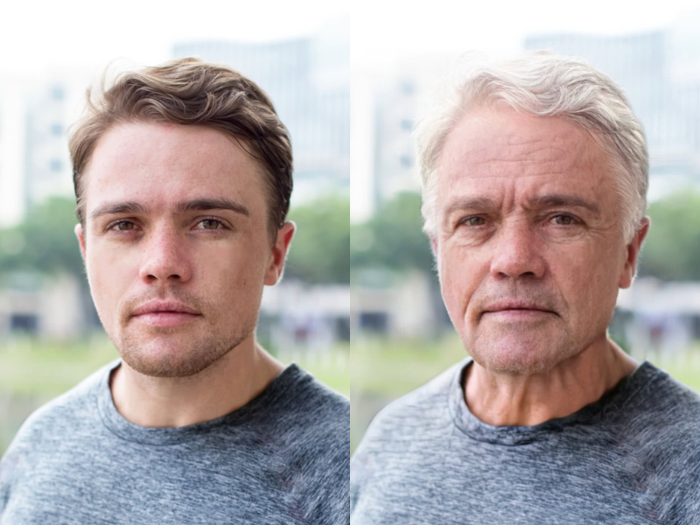
But CEO Yaroslav Goncharov told the Washington Post it only took the provided photo, and users didn't need to give a name or email.
As Business Insider's Ben Gilbert pointed out, this data collection was unfortunately fairly typical for most apps.
One pretty intense bit of data that's now being monitored is the way we physically touch our devices. The way people press, scroll, and type is being tracked. Mostly, it's to help banks fight fraud, but it also helps build profiles of people.

Source: The New York Times
Once you're ready to leave your house, prepare to provide more data. If you drive to work or school in a new car, you could be driving what The New York Times called "essentially smartphones with wheels." Vehicles can now track how much weight a driver puts on, how fast people drive, the routes they take, and the number of passengers in the car.
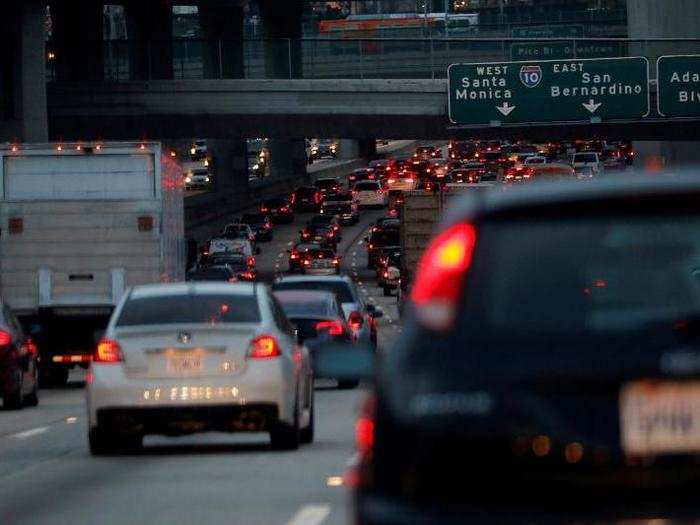
The point of this is mainly to transmit maintenance and performance data to the car's manufacturers. But it adds up. The New York Times reported that every hour of driving could be sending 25 gigabytes of data, according to a McKinsey report.
This information would be valuable to a number of different companies. Insurance firms, when deciding whether or not to provide coverage, could theoretically analyze a person's braking, speeding, and seatbelt habits before making a decision.
If you drive pass a toll booth, your license plate will be recorded. The Metropolitan Transportation Authority also tried, so far unsuccessfully, to identify drivers as they traveled over some New York bridges.
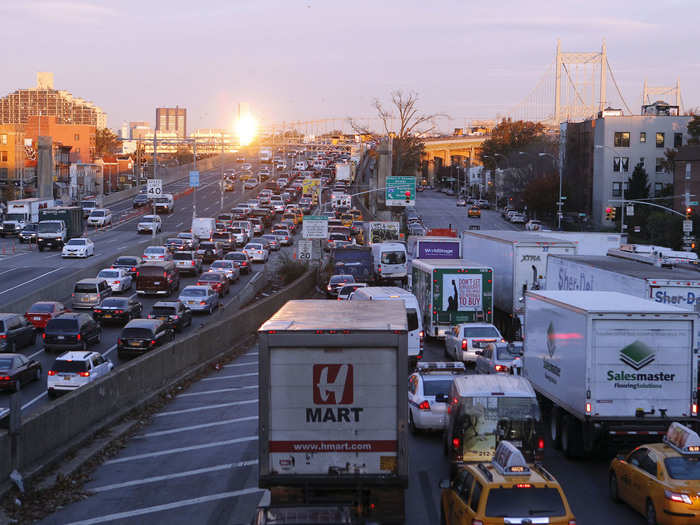
The Wall Street Journal reviewed internal emails in April 2019 and found the cameras had never successfully identified drivers.
Maybe you call an Uber. That app has your location data, personal, and banking information. Many drivers use cameras in their cars for safety and insurance reasons, and some passengers were deliberately recorded in Texas, Florida, and Tennessee in 2019 to help the company work on its disputes policies.

Source: The New York Times
Opting to walk won't help your privacy. Along with your phone or laptop's GPS tracking your location, cameras are watching. In New York's Lower Manhattan, for instance, police monitor 9,000 cameras.
Security technologist Bruce Schneier told Time that carrying a smartphone was like carrying a tracking device. Google Maps can remember where you go if you have your phone on you and save it to a Google Timeline.
Sources: The New Yorker, Time, PCMag
Once you're at work, privacy varies depending on the company. According to CNBC, a Gartner 2018 survey found that 22% of workplaces around the world are monitoring employee's movements, 17% monitor work rate on computers, and 16% monitor calendar data.

Source: CNBC
In some companies, privacy is dissipating for the sake of efficiency. For instance, Microsoft analyzes data of its employees, looking into how often workers send chat messages, emails, or are in meetings, in order to try and maximize their output.
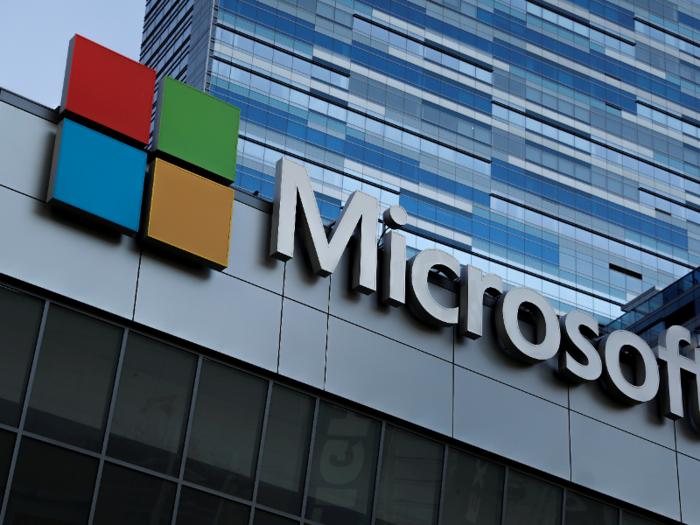
Source: Wall Street Journal
If you need to buy something on your lunch break, even just walking into certain stores can notify retailers about your shopping habits, via Bluetooth and GPS. Bluetooth beacons are so accurate they can track you to within inches of where you are.
Sources: Time, The New York Times
What happens is that the beacons emits messages, which are detected by apps on your phone, even if the app is closed. Recognizing the beacon, the app sends data — like where in the store you spent the longest — to a company. These beacons are in places like malls, cinemas, gyms, and airports.
Source: The New York Times
Of course, if you order something online, that company would also have access to things like your name, shipping and billing addresses, payment information, and buying decisions. Amazon lets you turn your browsing history off, and delete any searches you've made in the past.
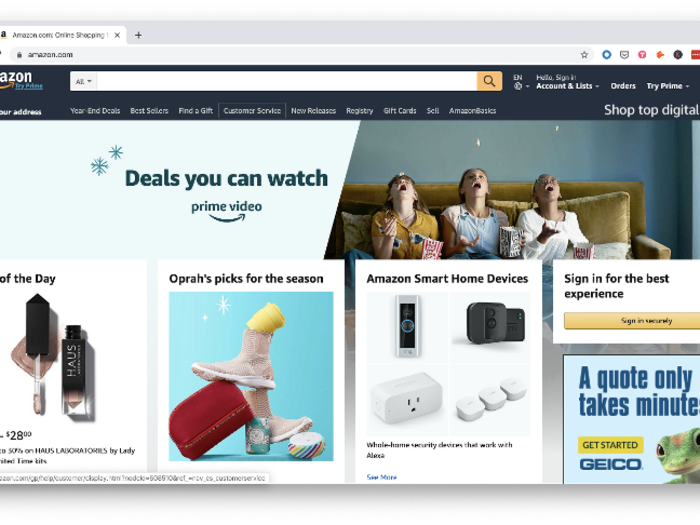
If you have a supermarket club card, your purchases could be analyzed on that, too. Whatever you buy could be added to your profile, and would change advertising you see if you shop online. If you've bought baby wipes, you could end up seeing ads for new parents.
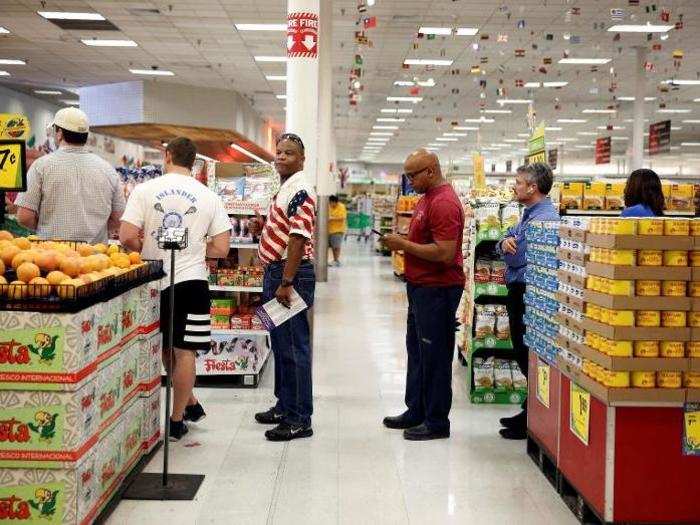
Even if you don't use a club card, supermarkets can monitor how often a credit card is used to see how frequently you're shopping.
After work, it could be date time. But if you're dating through an app, that information could end up in a third party's hands. In 2018, a Spanish researcher spent about $180 to get 1 million people's dating profiles from dating app Plenty of Fish. The package included 5 million photographs, as well as birthdays, zip codes, sexuality, and drinking habits.

Source: Financial Times
If you attend a political protest and bring your phone, that's could be recorded. Even if you wear a mask, anonymity is hard to attain. According to The New York Times, protesters can be tracked and recorded, and political parties are even starting to buy these phone locations.
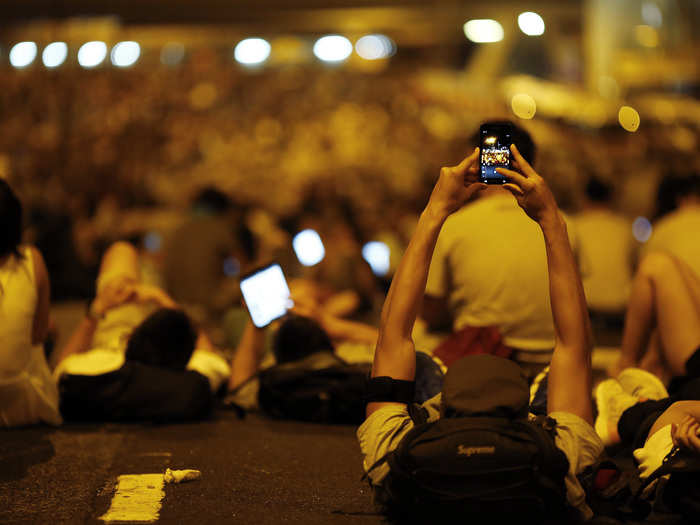
Source: The New York Times
If you go to a concert, your face could be monitored to ensure you're not stalking the performer. That happened during Taylor Swift's 2019 Reputation tour. At her shows, fans went unknowingly into "selfie stations" and scanned to ensure they weren't a threat.
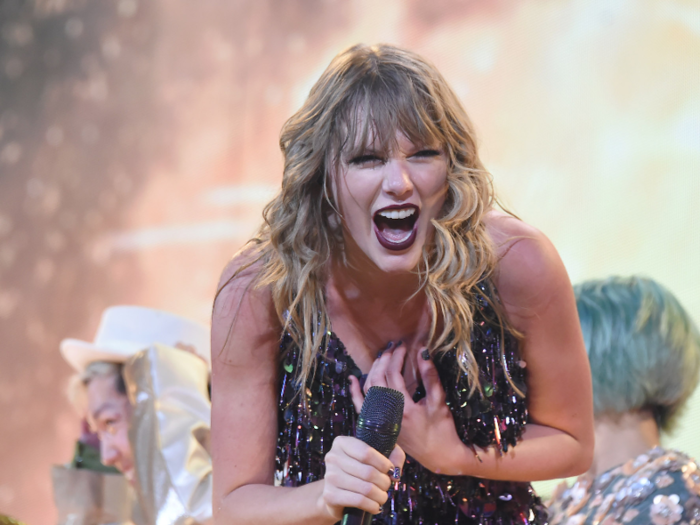
Sources: Rolling Stone, The Guardian
Unfortunately, not even settling in for an evening of Netflix is private. Along with the information you provide when you create an account, streaming services can also record what you use to watch it, your searches, how many episodes of a show you watch, and any interactions you have with customer services.
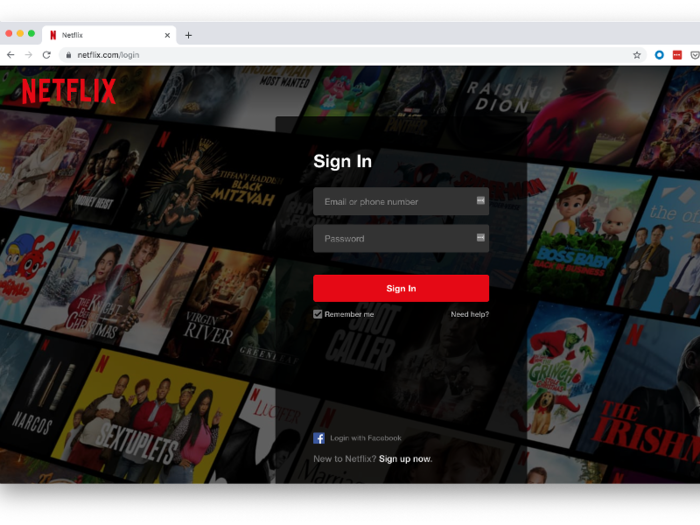
Source: USA Today
If you're hungry and order food while watching, it's another opportunity for companies to track you. In 2018, the Wall Street Journal investigated how much data was released by ordering pizza and watching a movie. It found two friends could give up 53 pieces of data.
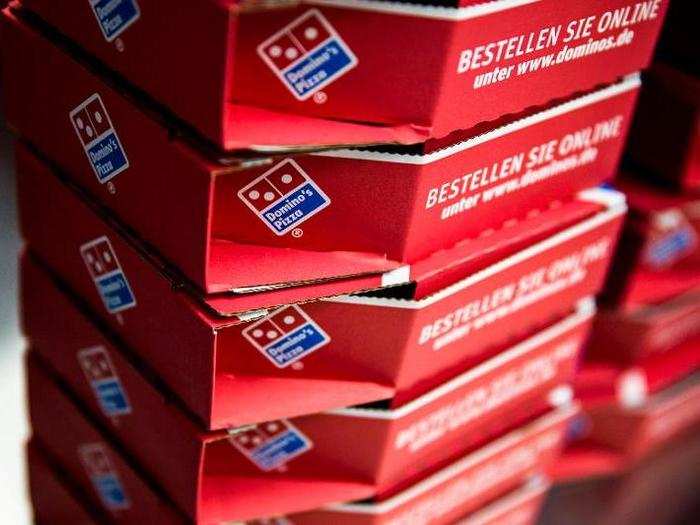
Source: Wall Street Journal
While data is mainly gathered through screens at the moment, the future of data gathering is likely to be in health-monitoring technology and your voice. Thousands of Amazon workers are already listening to some Echoes in order to improve Alexa's comprehension of human speech.

To protect your privacy, you can use complicated, different passwords, enable two-step authentication, download encryption tools, and, if you're really concerned, post less. But really, it's almost impossible to live a fully private life in the modern world.
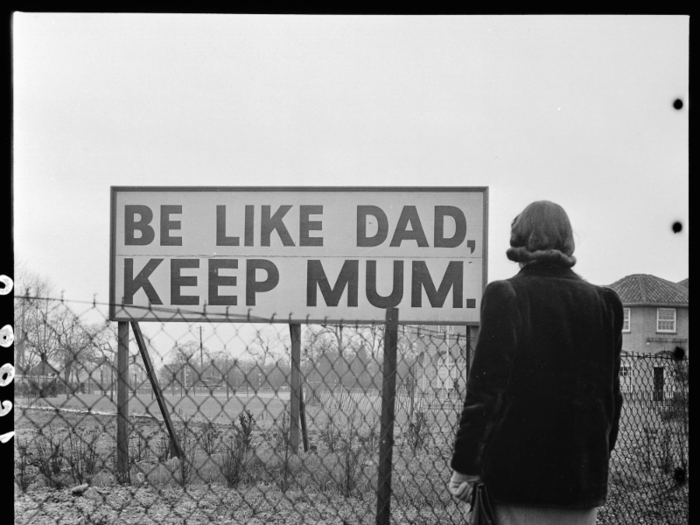
Source: Time
Popular Right Now
Popular Keywords
Advertisement